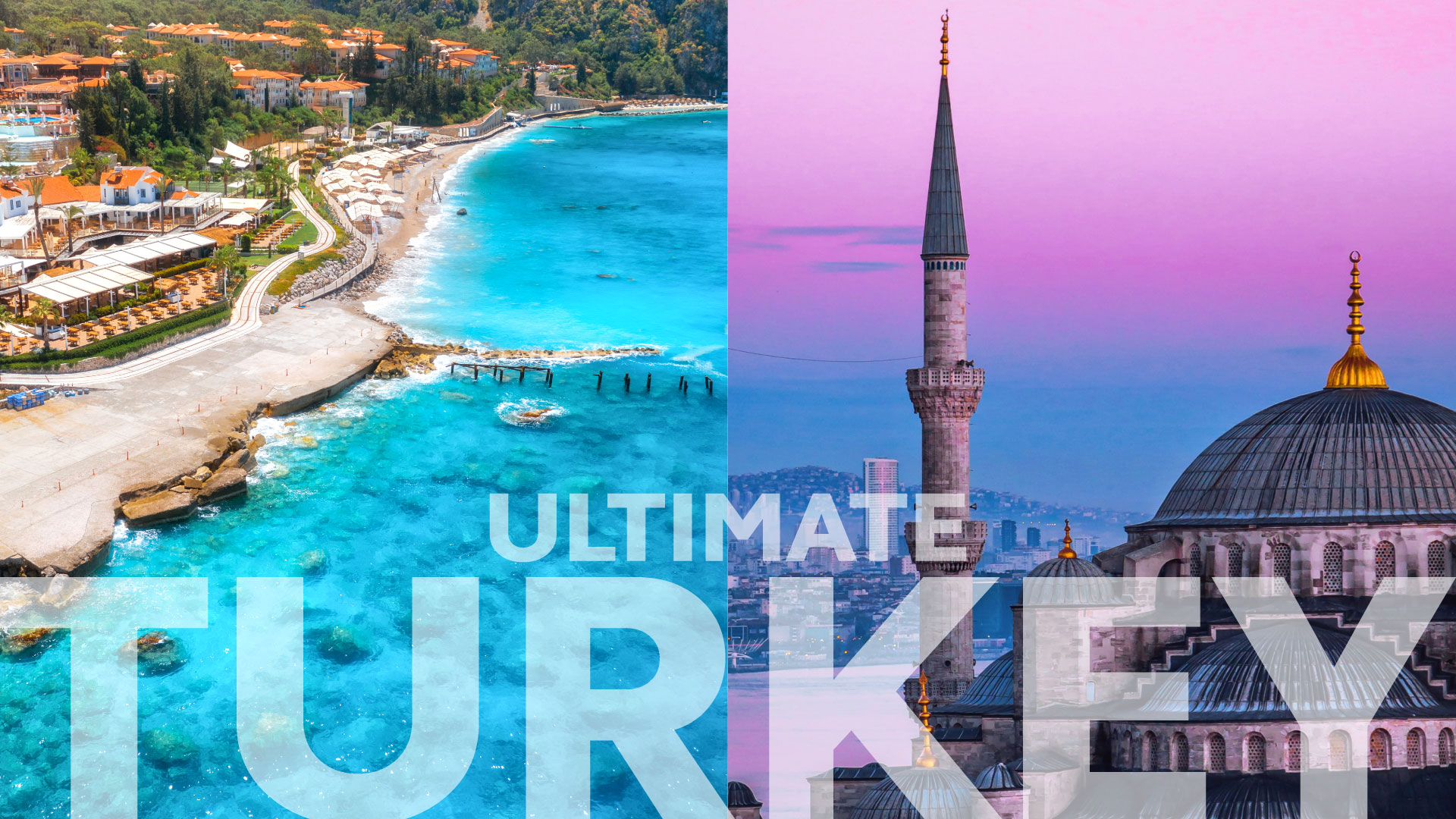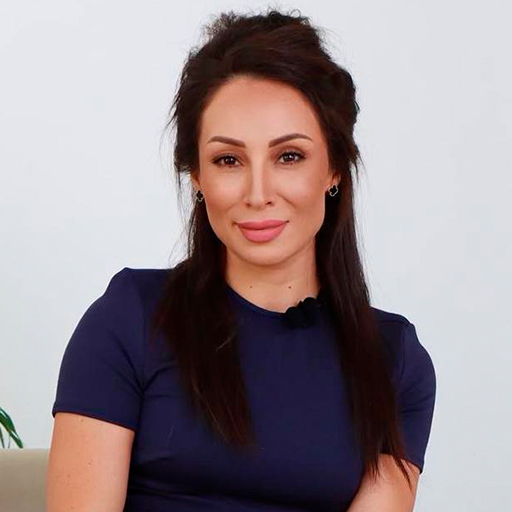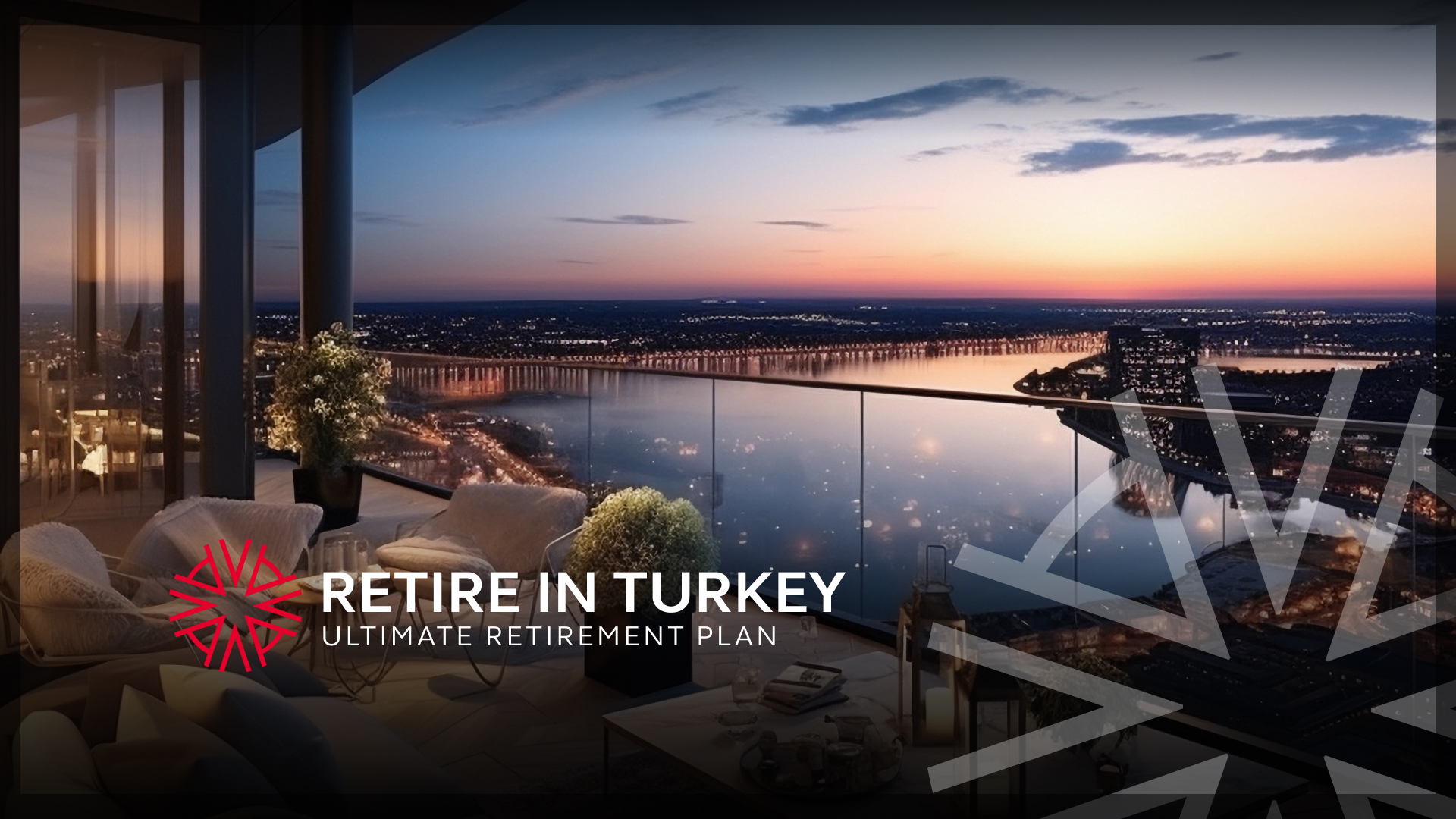A long-held insider secret of the European and Asian High-Net-Worth [HNW] community, Turkey, has been leaked and is now captivating the global community of entrepreneurs, investors, and families seeking to level up their luxury real estate portfolios and their personal sovereignty.
The Eurasian nation is a land of diversity and opportunity at the crossroads of two worlds, where East meets West. From the bustling metropolis of Istanbul to the tranquil beaches of the Aegean coast, Turkey presents an array of experiences.
But what truly sets Turkey apart is its blend of modernity and tradition – offering European luxury fused with Asian opulence.
From bustling old-world bazaars selling unique artisan goods to ultra-modern shopping malls offering the latest fashion trends from Paris, New York, London, and Milan.
Turkey is a nation-size museum and art gallery – you will find everything from ancient history to a contemporary culinary scene.
Created by our insiders and experts from our Istanbul office, this is the only essential and current guide to Turkey that any entrepreneur, investor, and family needs to genuinely understand life in this captivating country.
A brief history of Turkey
Modern Turkey is a tapestry woven from the threads of ancient civilizations, empires, and cultures stretching back millennia.
The region has been the crucible for the rise and fall of some of the world’s most renowned civilizations, such as the Hittites, Phrygians, Urartians, and Lydians.
Perhaps most famously, the Trojan War, immortalized by Homer in the Iliad, is believed to have occurred in western Turkey.
For the Roman Empire, Turkey became a pivotal location, and cities like Ephesus and Byzantium (later Constantinople, now Istanbul) gained prominence.
After the Roman Empire’s division, the Eastern Roman (Byzantine) Empire continued for another thousand years, leaving a legacy of art, architecture, and religion.
The Ottoman Turks’ subsequent arrival led to the Byzantine Empire’s gradual decline, climaxing with Constantinople’s Ottoman conquest in 1453.
The Ottoman Empire thrived for centuries before its decline in the early 20th century, setting the stage for the birth of the modern Turkish state.
The Republic of Turkey was founded in 1923, leading to sweeping reforms that transformed the country’s political, legal, linguistic, cultural, and economic spheres – ultimately making Turkey the European and Asian power player it is today.
In 2022, the country changed its official name to Türkiye [the Republic of Türkiye]. But, most people still use the more commonly known version – Turkey.
What makes Turkey so attractive?
So, what’s bringing thousands of HNW entrepreneurs, investors, and families to Turkey?
The reasons are multi-faceted, but opportunity and lifestyle lie at the heart of them all:
- Gateway to Multiple Regions: Turkey’s unique location, straddling Europe and Asia, offers strategic access to multiple markets – making Turkey an ideal base for businesses expanding into European, Middle Eastern, and Central Asian markets
- Attractive Citizenship Program: Turkey’s Citizenship by Investment program [CIP] is fast, straightforward, and very appealing, including the ability to leverage the US E-2 Investor Visa – over 5,000 investors have already accessed the Turkish CIP, including many from the US
- Business Friendly: Turkey’s economy has vital agricultural and manufacturing sectors, a growing service sector, an emerging hub for tech startups and innovation, and one of Europe’s most crypto-friendly climates and economies
- Healthcare: Turkey has invested heavily in state-of-the-art healthcare with modern facilities, spurring a dynamic medical tourism industry
- Real Estate Ground Floor: The only European market with luxury property developments on four of Europe’s most sought-after coastlines – the Mediterranean, Aegean, Black, and Marmara Seas.
But, if you genuinely want to understand the appeal of Turkey to the HNW community [especially from the US], it can be reduced to a simple fact – which was captured by the Wall Street Journal in 2023:
Turkey is where millionaires live like billionaires
Prime locations for luxury living in Turkey
With a country and a culture as extensive and diverse as Turkey, you would expect a property market to match – and you won’t be disappointed.
Each city and region has a unique real estate market offering unique advantages, amenities, access, and lifestyle opportunities.
Based upon the dozens of HNW investors our Istanbul office has represented, here are the hottest and chicest real estate markets to invest in.
Istanbul: The Cosmopolitan Heart
As Turkey’s largest city, Istanbul lies on two continents – Europe and Asia – and benefits from both influences.
In upscale neighborhoods like Beşiktaş and Nişantaşı, you find luxurious modern apartments and penthouses offering stunning views of the Bosphorus.
The Bosphorus coastline is also dotted with ‘Yalı’ mansions – prestigious waterfront houses that blend Ottoman architecture and contemporary luxury.
Istanbul’s historic districts, such as Sultanahmet and Galata, are home to beautifully restored Ottoman-era townhouses, perfect for those who appreciate old-world charm.
Bodrum: The St. Tropez of Turkey
Bodrum is known for its exclusive resorts, beautiful beaches, and vibrant nightlife along the Aegean coast. It’s currently Turkey’s most trendy HNW destination.
The Bodrum Peninsula is synonymous with luxury villas that offer sea views, private docks, and exclusive beaches in areas like Yalıkavak and Türkbükü – designed for those seeking leisure and privacy.
Along with several high-end gated communities and resorts for those interested in a more communal setting.
Antalya: The Capital of Tourism
Antalya – or Anatolia – is a city on Turkey’s southern Mediterranean coast, with Cyprus in its coastal foreground. This part of Turkey is known as the Turquoise Coast for its alluring blue waters, unmatched beaches, championship golf courses, and ancient ruins, such as Hadrian’s Gate and the Aspendos Theatre.
The districts of Konyaaltı and Lara are trendy among expatriates and affluent Turks for their contemporary and sophisticated apartments and villas, often featuring views of the Taurus Mountains and the Mediterranean Sea.
Nearby towns, like Belek and Kas, also offer luxurious accommodation options, catering to those who prefer a more laid-back, resort-style living.
Ankara: The Heartbeat
As the capital city, Ankara has a more formal atmosphere compared to Istanbul. The neighborhoods of Çankaya and Kavaklıdere are home to many embassies, so local properties include upscale apartments and detached houses that diplomats favor.
These areas suit those who appreciate a quieter lifestyle but still want access to sophisticated urban amenities.
Fethiye and Göcek: Nautical Havens
Fethiye and Göcek are known on the southwestern coast for their natural harbors and marinas, making them popular among sailing enthusiasts.
These cities feature spacious villas with impressive sea views, extensive gardens, and expansive terraces, all nestled among the tranquil green mountains. Houses and apartments closer to the marinas often include private jetties.
The lifestyle here is laid-back, ideal for those who love the sea and outdoor activities.
Izmir: The Aegean Pearl
A vibrant city strategically located on the Aegean Sea, combining a rich historical tapestry with modern luxury.
The allure of Izmir lies not just in its stunning coastal landscapes but diverse range of properties, from luxurious seaside villas and modern apartments to historic homes.
Izmir’s growing reputation as a hub for commerce, technology, and education in Turkey enhances its appeal and promises a vibrant lifestyle with strong rental demand.
Izmir’s cultural richness encompasses ancient historical sites, a flourishing arts scene, and gastronomic delights, adding up to a unique and unparalleled quality of life.
Alanya: The Mediterranean Retreat
A prized Medietterean retreat of every empire that has ever conquered the region, Alanya still attracts wealth and tourism to this day.
In fact, Cleopatra Beach is so-named as it is said to have been the Egyptian Queen’s favorite swimming destination.
Today, Alanya is still fit for royalty, with high-end tourism as the backbone of the local economy and rental market.
Championship golf courses, luxury resorts, upgraded infrastructure, and a new modern airport only 40-minutes from the city center add all the necessities for the high-end coastal properties in Alanya.
Astons Guaranteed Rental Income Program
The fact is, Turkey is the world’s #1 rental market.
Per the OECD, rental incomes surged by 519.49% from 2005 to 2023 – and the trend has yet to slow down.
But, it will eventually, as all real estate investors know – and likewise, as all sophisticated investors know, timing is everything.
So, why not have the best of both worlds?
Astons offers a Guaranteed Rental Income Program – in partnership with select developers – that guarantees our clients’ properties will be rented and generating income for investors who purchase through the Turkey citizenship by investment program.
Turkish fine dining and cuisine
Turkish cuisine is a rich mosaic of flavors from the many civilizations that have thrived in the region. It integrated culinary elements from its vast territories, including the Middle East, Central Asia, Eastern Europe, and the Balkans.
Today, the key ingredients in Turkish cuisine include olive oil, eggplant, beef, lamb, yogurt, fresh herbs, and various spices. Seafood is also prominent in the coastal regions.
Typical Turkish comfort foods include:
- Kebabs: Grilled meat, often lamb or beef, served on skewers or as a part of a larger dish. Varieties like Adana, İskender, and döner have spread internationally
- Meze: A selection of small dishes served as appetizers, often including hummus, stuffed vine leaves (dolma), and various eggplant salads [much like Spain’s tapas]
- Baklava: A sweet dessert made of layers of filo pastry and a filling of chopped nuts sweetened with syrup or honey
- Köfte: Seasoned meatballs or patties, which can be grilled, fried, or stewed and vary by region
- Lahmacun: Often dubbed ‘Turkish pizza,’ a thin, crispy dough topped with minced meat, vegetables, herbs, and spices
Turkey’s fine dining scene is extensive. Many restaurants have received international acclaim – including 113 with Michelin distinctions and Green Stars – particularly in Istanbul, but many options exist throughout the country.
In Istanbul:
- Mikla: Located in the cosmopolitan district of Beyoğlu and named one of the world’s 50 Best Restaurants, Mikla is renowned for its innovative approach to Anatolian cuisine and city views. Chef Mehmet Gürs’ creativity has earned the restaurant international acclaim and a Michelin star.
- Neolokal: In the historic Salt Galata building, Chef Maksut Aşkar and his team at Neolokal have been awarded a Michelin star for their modern interpretations of traditional Turkish dishes.
- Sunset Grill & Bar: In the upscale neighborhood of Ulus, this Michelin-recognized venue serves impressive Turkish and international dishes, complemented by a show-stopping panoramic view of Istanbul and the Bosphorus.
In Bodrum:
- Mimoza: Mimoza in Gümüşlük serves dishes prepared with fresh, locally sourced ingredients. Incredibly popular with tourists and locals, owing to a charming seafront view.
- Orfoz: A seafood haven with a slight Asian influence in Bodrum, also listed in the Michelin Guide, is known for its creative use of local seafood and a sophisticated dining experience on the bay
In Cappadocia:
- Elai Restaurant: Located in Uçhisar, the region’s ingredients inspire Elai’s menu, but most guests experience sensory overload due to the flavors and unmatched scenery, including Turkey’s famous Fairy Chimneys of ancient stone
- Seten: A no-reservations accepted – first come, first-come-served restaurant, a table at Seten is one of the most difficult to get in the region, but those who do never forget the experience
In Antalya:
- 7 Mehmet: One of Antalya’s oldest and most established restaurants, it offers a wide range of Turkish dishes with a focus on quality and local flavors
- Seraser: In the Kaleiçi district, Seraser is set in a beautifully restored Ottoman mansion with tastes of the Mediterranean
High-end shopping in Turkey
In a country famous for the world’s first shopping mall (the Grand Bazaar), it should come as no surprise that shopping is a part of Turkish culture – and equally as extravagant.
Istanbul is, naturally, the primary destination for luxury shopping:
- The prestigious Nişantaşı district is akin to Paris’s Champs-Élysées, lined by international brands like Louis Vuitton, Prada, and Chanel, as well as sought-after Turkish designers
- The Grand Bazaar is a must-visit, although as one of the largest covered markets in the world, its labyrinth of shops is less about household names and more focused on high-quality artisan goods, including fine jewelry, hand-woven carpets, leather goods, and antiques
- Bağdat Avenue presents a more relaxed shopping experience with chic boutiques, international brands, and local designers for everything from fashion to home decor
- İstinye Park and Zorlu Center are among Istanbul’s most exclusive shopping malls, housing a mix of luxury international brands, high-end labels, and gourmet dining options, all within architecturally stunning spaces
Meanwhile, in Ankara, the districts of Çankaya and Gaziosmanpaşa are known for their upscale shopping centers like Armada and Next Level, which host a variety of international and Turkish brands alongside elegant cafes and restaurants.
In coastal regions like Bodrum and Antalya, luxury shopping is often centered around the marinas and waterfront areas.
In Bodrum, Palmarina and Bodrum Marina house various high-end boutiques, perfect for finding exclusive fashion pieces. Antalya’s TerraCity and Antalium Premium Mall in Lara are the go-to spots.
For those interested in traditional Turkish crafts, areas such as the Arasta Bazaar in Istanbul and the old quarters of Antalya and Bodrum contain a variety of artisanal shops. Here, you will find handcrafted items like Turkey’s famous Iznik ceramics.
Turkey’s exclusive leisure activities
Yachting and sailing
Turkey’s extensive coastline, spanning four of Europe’s most sought-after seasides, is dotted with marinas and beautiful bays – a paradise for yachters and sailors.
The Aegean and Mediterranean coasts, particularly around Bodrum, Marmaris, and Göcek, are renowned as maritime treasures:
- Palmarina in Bodrum: This is a favorite among the yachting community, accommodating superyachts up to 135 meters. It’s not just a marina; it’s a lifestyle destination with luxury boutiques, gourmet restaurants, and vibrant nightlife
- Netsel Marmaris Marina: Located in the heart of Marmaris and one of the largest and most equipped superyacht marinas in Turkey, it caters to a variety of yachts and provides easy access to the town’s attractions
- D-Marin Göcek: Nestled in a naturally protected harbor, Göcek is a quiet refuge for yachting enthusiasts, with facilities and services catering to luxury vessels
Golfing
Turkey is rapidly developing a reputation as a popular hotspot for golfers, particularly in Belek (about 40 minutes east of Antalya).
The volume of courses in Belek is astounding – there are 14 championship-standard courses stretched along the coastline. Nearby, five-star resorts cater to a golfer’s every need.
A couple of the most prominent courses:
- The Montgomerie Maxx Royal Belek Golf Club is one of the most prestigious golf clubs in Belek, offering a world-class 18-hole course designed by Colin Montgomerie, set amidst glorious Mediterranean scenery
- Carya Golf Club: Another highlight in Belek, this club boasts a unique Heathland course that challenges and delights golfers of all levels
Scuba diving and water sports
Turkey’s clear, warm seas are ideal for scuba diving and water sports. There are options for all four seas, but the most popular are all along the Aegean and Mediterranean coastlines – in particular:
- Kaş – Kaş has carved a reputation as a diving haven, with an array of dive sites consisting of bountiful marine life and fascinating wrecks
- Fethiye – Fethiye is popular for water sports, including paragliding from the famous Babadağ mountain and diving in crystal-clear waters
Private cultural and historical tours
The local experts in our Istanbul office highly recommend exploring Turkey through private guided tours. It’s a profoundly enriching experience for the whole family.
Many options exist for touring Istanbul’s most historic attractions, including the Hagia Sophia, Topkapi Palace, and the Grand Bazaar.
Meanwhile, one of the most exciting experiences in the country is a private hot air balloon ride over Cappadocia. The birdseye view of Cappadocia’s unique rock formations [the Fairy Chimneys], underground cities, and ancient cave churches is unforgettable.
Skiing
Skiing might not be the first activity that comes to mind when thinking about Turkey. But, in fact, Turkey has some of Europe’s best skiing and best ski resorts.
Here are three of the best options:
- Uludağ Ski Resort: Located near Bursa, a two-hour drive from Istanbul, Uludag is Turkey’s oldest and most popular ski resort – offering slopes for all levels, high-end hotels and chalets, and a lively après-ski scene
- Palandöken Ski Resort: Situated in Erzurum, Eastern Anatolia, Palandöken has long, steep runs suitable for experienced skiers – if you’re feeling adventurous, try the night or heli-skiing
- Kartepe Ski Resort: Located in Kocaeli province, closer to Istanbul, Kartepe is ideal for families
Education in Turkey
As Turkey’s citizenship by investment program is leveraged by many HNW families, the country offers a vast range of private and international schools with first-class facilities and student support.
The international schools offer education in English and other languages, like German or French, catering to a diverse range of pupils from varying backgrounds.
Students will work towards qualifications such as the International Baccalaureate (IB).
Turkey’s international schools are mainly concentrated in major cities (Istanbul, Ankara, and Izmir), and their multicultural environments are ideal for expatriate families.
A few of the most popular include:
- The British International School: Located in Istanbul, this school teaches the English National Curriculum leading to IGCSEs and the IB Diploma
- Robert College: Also in Istanbul, it’s one of the oldest American schools outside the US, Turkey’s top academic institution, and one of the most selective universities in Europe for admission
- MEF International School: With campuses in Istanbul and Izmir, MEF teaches the IB curriculum
- Istanbul International Community School: A well-established school in Istanbul, offering the IB program from primary to diploma level
- TED Ankara College Foundation Schools: This prestigious institution teaches a blend of the Turkish National Curriculum and the IB program in Ankara
Astons Istanbul – Make Turkey Your Power Move
Though Turkey itself is a wonder, it’s no wonder that Turkey has become a sought-after destination for global entrepreneurs, investors, and families seeking a secure and advantageous:
- Second [or additional] passport
- Lifestyle
- Luxury real estate investment
- Asset, market, and currency diversification
- One of the best European Plan B’s that money can buy
In Turkey, the standard of living is extraordinary. From sumptuous dining and upscale shopping to exclusive leisure activities, there’s something to suit every preference.
Our dedicated team in Istanbul provides end-to-end support for any entrepreneur, investor, or family seeking to leverage the power move Turkey is.
Astons has revolutionized the local real estate market, offering a property service that mirrors the industry best practices of the US and UK:
- High-quality one-on-one service
- Guaranteed property status
- Secure protected investments
Schedule your Free Confidential and Comprehensive Consultation with Astons’ Istanbul office, and our experts will analyze your unique wants, dreams, goals, and demands and provide you a list of options – along with Turkey – that satisfies them all.
Frequently Asked Questions
Turkey has a very successful citizenship by investment program.
The Turkish CIP is real estate based and currently has a required minimum investment of $400K and typically, applications only take around 4 months to be approved.
Once approved, Astons helps our clients secure Turkish passports for all applicants.
There are rumors from several insider and reliable sources that the minimum investment is expected to be increased to $600K at some point in mid-2024.
While Turkey has been in negotiations to join the EU for over a decade, the country is not yet a member of the European Union.
Thus, Turkish citizens will not have [nor will US, UK, and all other non-EU citizens] ETIAS exemption to enter the EU in 2025.
However, if Turkey does as some point finalize their agreement with the European Union and become a member state, all Turkish citizens will automatically become EU citizens as well.
The private health care system in Turkey is among the best in Europe.
In fact, Turkey has become a global hub for medical tourism due to the high degree and state-of-the-art options for medical services in the country.
In fact, in 2022, the Turkish medical tourism industry was valued at over $3.5 billion that year and it is expected to reach nearly $5 billion by 2029.
The official language of Turkey is Turkish, however, due to the enormous expat community that lives throughout Turkey, other languages are commonly found.
Among those other languages, English is the most common.
In the large urban areas [such as Istanbul] and coastal areas [such as Izmir and Bodrum], especially where tourism has a significant role in the local economy, English is widely spoken.














